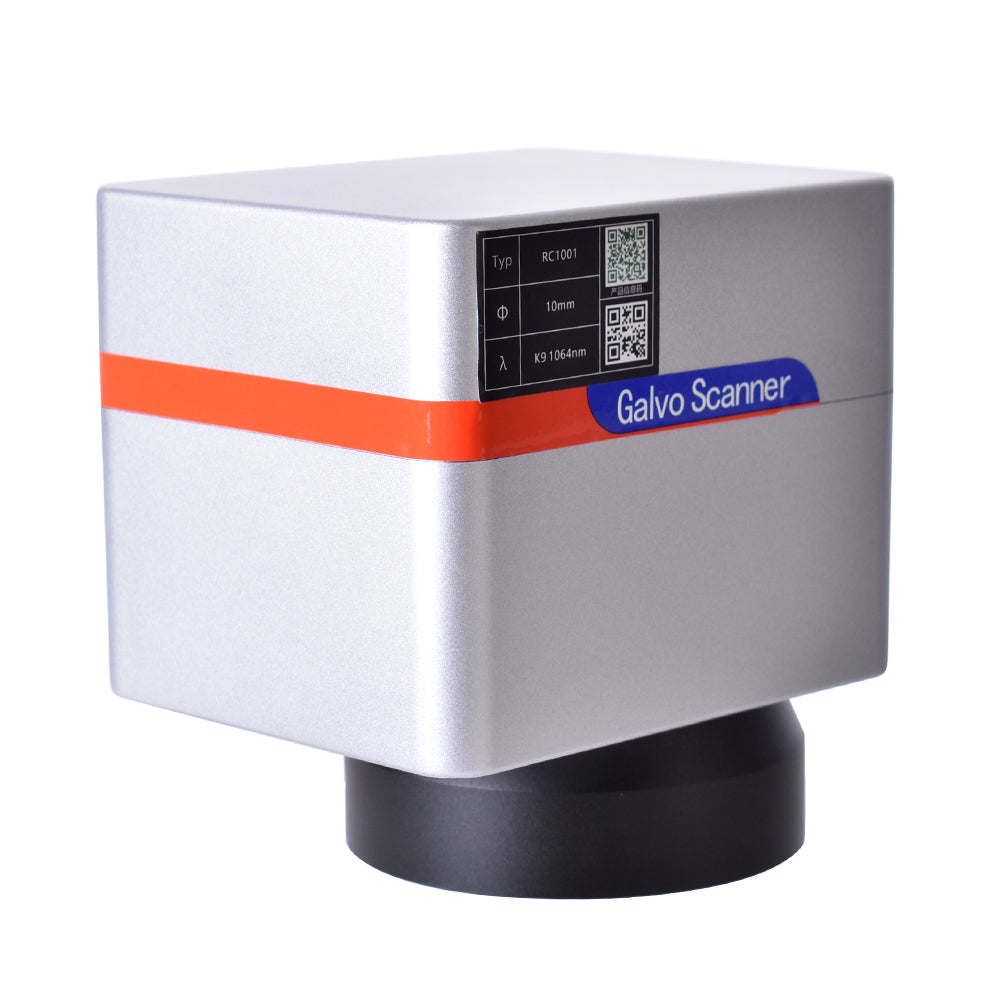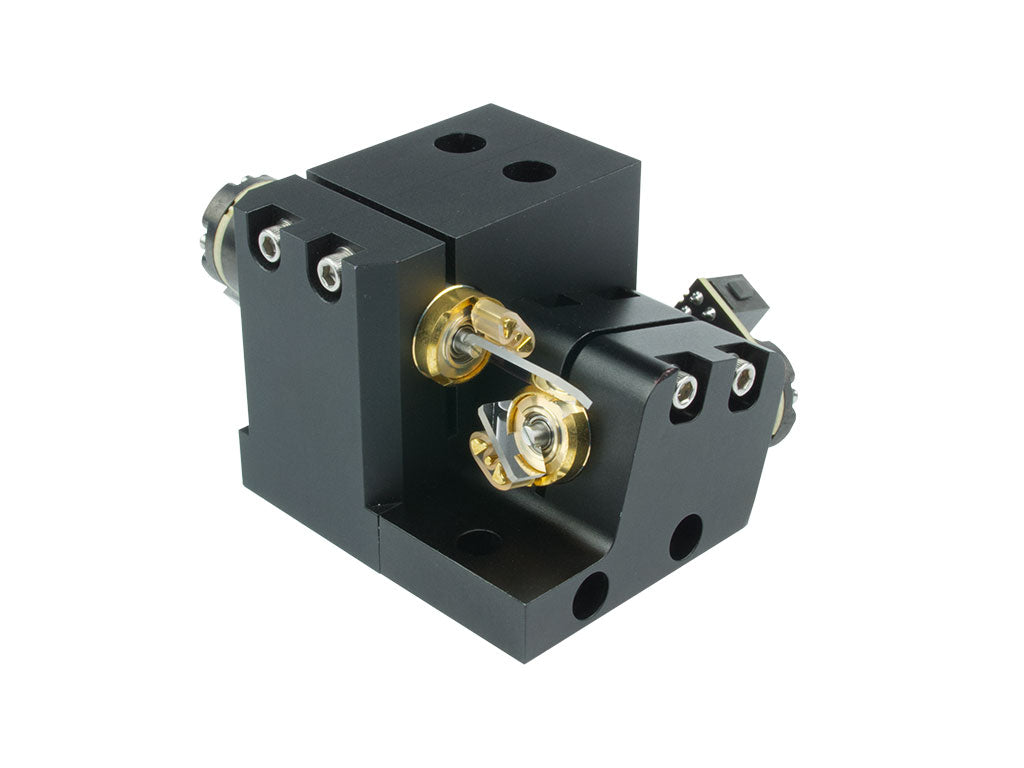How a Galvanometer Scanner Revolutionizes Optical Applications for Researchers
How a Galvanometer Scanner Revolutionizes Optical Applications for Researchers
Blog Article
Just How a Galvanometer Scanner Enhances Performance in Laser Scanning Technologies
The assimilation of galvanometer scanners in laser scanning technologies stands for a pivotal development in precision engineering. By promoting fast and accurate adjustments of laser beam direction, these gadgets significantly enhance operational efficiency across numerous applications, from clinical imaging to commercial engraving. The underlying electromagnetic devices, coupled with advanced feedback systems, make certain real-time control and improved accuracy. Nonetheless, as industries progressively demand higher efficiency standards, the inquiry arises: what future technologies might better raise the capabilities of galvanometer scanners in this progressing landscape?
Understanding Galvanometer Scanners
A galvanometer scanner is an advanced tool that leverages electromagnetic concepts to accomplish precise angular movement of mirrors or various other reflective surfaces. These scanners operate through the interaction of an electric existing and an electromagnetic field, making it possible for precise and quick placing. This innovation is essential in applications needing high-speed scanning, such as laser inscription, optical communication, and clinical imaging.

Galvanometer scanners are usually defined by their quick action times and high angular resolution, making them suitable for applications that demand quick movements and precise positioning. Their integrity and efficiency make them a crucial element in modern-day laser scanning modern technologies, adding significantly to improvements in different fields, including manufacturing, medical care, and telecoms.
Mechanism of Laser Beam Control

The control device depends on closed-loop responses systems that constantly keep track of the light beam's placement. The signals from optical sensors supply real-time information to the control system, enabling quick adjustments to maintain precision. This is important in applications where even mild deviations can endanger the high quality of the check or etching.
Furthermore, the galvanometer's response time is critical; high-speed motors make it possible for quick activities, guaranteeing that the laser light beam can rapidly map intricate patterns or perform intricate operations. The assimilation of digital signal handling even more improves the responsiveness and accuracy of the galvanometer scanner. Generally, the mechanism of laser beam control through galvanometer scanners exhibits the fusion of innovative engineering and technology, generating high-performance end results in laser scanning applications.
Advantages of Boosted Precision
Enhanced precision in laser scanning innovations supplies considerable advantages throughout different applications, from commercial manufacturing to clinical procedures. The combination of galvanometer scanners permits highly precise beam of light positioning, which is vital for tasks requiring careful detail. This enhanced precision guarantees that the laser can target certain areas with marginal discrepancy, leading to exceptional quality outcomes.
In industrial contexts, precise laser scanning causes boosted product consistency and reduced material waste. Components produced with high accuracy are much less most likely to need rework, consequently improving efficiency and decreasing operational prices. Likewise, pop over to this site in clinical applications, the precision of laser procedures can considerably impact client results. In laser surgical treatment, specific targeting lessens damages to bordering tissues, leading to quicker recuperation times and fewer problems.
Moreover, improved precision promotes innovative applications such as 3D imaging and microfabrication, where also minute inaccuracies can cause significant errors. By giving repeatable and trusted laser positioning, galvanometer scanners contribute to the overall efficiency and efficiency of laser systems. In summary, the benefits of boosted precision not only enhance operational efficiency yet also elevate the requirements of top quality and safety and security in different industries.
Applications in Various Industries
The versatility of galvanometer scanners in laser scanning innovations extends throughout numerous markets, each taking advantage of the precision they offer. In the clinical field, these scanners are critical in applications such as laser surgery and imaging, permitting for very precise targeting of tissues while reducing damages to bordering areas - galvanometer scanner. Their rapid reaction and great resolution are crucial in generating premium results
In the manufacturing market, galvanometer scanners enhance procedures like laser engraving and cutting. Their ability to swiftly route laser beams onto surface areas makes it possible for effective assembly line, improving rate and precision in developing complex styles or components.
The automotive sector likewise profits from galvanometer technology for quality control and examinations (galvanometer scanner). By employing high-speed scanning, makers can identify defects in materials or assemblies, ensuring that products meet rigid criteria
Furthermore, in the entertainment field, galvanometer scanners are utilized in laser light shows and displays, using vibrant aesthetic experiences with exact control over laser movements.
Future Patterns in Laser Scanning
Arising modern technologies are positioned to reinvent the landscape of laser scanning, with galvanometer scanners at the leading edge of this makeover. As markets progressively require accuracy and effectiveness, the advancement of galvanometer technology will drive considerable advancements in laser scanning applications.
Future trends suggest an expanding assimilation of fabricated intelligence and artificial intelligence formulas, which will boost information processing article source abilities and automate decision-making in real-time. This synergy will enable a lot more advanced analysis of checked information, resulting in enhanced accuracy in applications such as 3D modeling and self-governing navigation.
In addition, the miniaturization of components and the development of innovative materials will contribute to lighter, more portable laser scanning systems. This mobility will broaden the reach of laser scanning modern technologies into formerly hard to reach environments, such as remote surface and complex architectural areas.
The rise of increased reality (AR) and virtual reality (VIRTUAL REALITY) applications will additionally form the future of laser scanning. By incorporating galvanometer scanners with AR and VR, customers will gain from immersive experiences that improve visualization and job preparation.
Final Thought
In conclusion, galvanometer scanners play a crucial duty in optimizing laser scanning modern technologies via their precise control of beam direction and fast angular modifications. The combination of advanced feedback systems and optical sensing units significantly enhances functional rate and precision, leading to improved outcomes in applications such as laser engraving and medical imaging. As industries increasingly adopt these technologies, the continuous innovations Get More Info in galvanometer scanner designs are expected to more elevate performance criteria and widen application possibilities.
The integration of galvanometer scanners in laser scanning innovations stands for a critical advancement in accuracy engineering. Generally, the mechanism of laser beam control via galvanometer scanners exhibits the blend of sophisticated design and technology, producing high-performance outcomes in laser scanning applications.
By offering repeatable and reputable laser positioning, galvanometer scanners add to the total performance and performance of laser systems.The adaptability of galvanometer scanners in laser scanning modern technologies extends across several sectors, each benefiting from the precision they provide.In verdict, galvanometer scanners play an essential duty in optimizing laser scanning modern technologies through their precise control of light beam direction and rapid angular adjustments.
Report this page